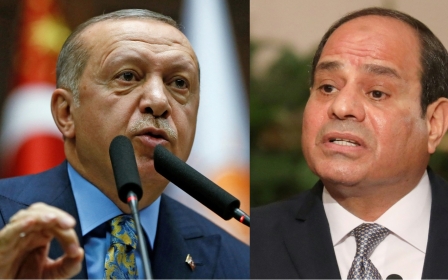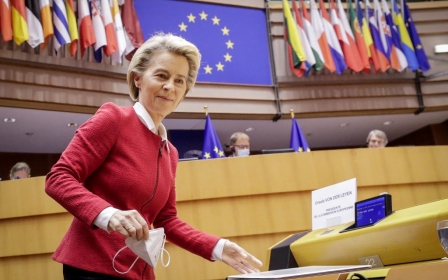Turkey: Crypto firms added to money laundering and terror financing rules

Turkey added cryptocurrency trading platforms to the list of firms covered by anti-money laundering and terrorism financing regulation, it said in a presidential decree published on Saturday.
The Official Gazette said the country's latest expansion of rules governing cryptocurrency transactions would take immediate effect and cover "crypto asset service providers."
The announcement comes with Turkey drafting new regulation to tax cryptocurrency transactions and assets, a Turkish newspaper reported on Monday.
Sabah daily, a major government-aligned newspaper, reported that cryptocurrencies would be deemed as assets or goods under Turkish law in the next few weeks.
"A new tax regulation concerning the purchase, acquisition, sale and transfer of the crypto financial assets will be introduced," the report said. "In order to protect the investors, the new regulation will strengthen the inspection and surveillance mechanisms of cryptocurrency trading [by the banking watchdog BDDK]."
New MEE newsletter: Jerusalem Dispatch
Sign up to get the latest insights and analysis on Israel-Palestine, alongside Turkey Unpacked and other MEE newsletters
The report said it was not immediately clear whether the new tax would be levied as a direct tax or income tax on cryptocurrency assets.
Turkish Central Bank chief Sahap Kavcioglu said last Saturday that the new regulation would come into force in two weeks.
Many countries, like the United Kingdom and the United States, tax cryptocurrency assets through income tax.
Earlier this month, the Turkish government banned the use of cryptocurrencies and crypto assets to purchase goods and services, as per a Central Bank regulation.
The Central Bank, in a subsequent press statement, said that "crypto assets entail significant risk" to the interested parties, including creating "non-recoverable losses". The decision also banned the use of digital wallets in cryptocurrency transactions.
Struggling lira
Due to the depreciation of the Turkish lira, which lost more than 20 percent of its value against the US dollar in the past 12 months, Turkish citizens switched their investments to cryptocurrencies and the stock exchange.
Daily market transactions of cryptocurrencies based in Turkey are believed to be worth $1-2bn. Several polls indicate that between 16 and 20 percent of Turkish citizens used or owned cryptocurrencies in 2020. Some estimates peg the number of cryptocurrency investors in Turkey at roughly 5 million.
In the wake of the Central Bank's regulation on purchasing, a number of local cryptocurrency exchanges declared bankruptcy.
The Istanbul-based founder of the cryptocurrency exchange website Thodex shut down his site and appeared to have fled the country with a reported $2bn in investors' assets last week.
The website had about 400,000 users, 390,000 of whom were trading actively, according to state news agency Anadolu.
Turkish authorities late last week detained at least four people connected to another local crypto exchange, called Vebitcoin, which announced that it had stopped all of its activities, citing financial strains. Vebitcoin was Turkey's fourth-biggest exchange platform, with close to $60m in daily volumes, according to CoinGecko, which tracks data on price, volume and market value on crypto markets.
Sabah newspaper reported that the government blocked $120m worth of illicit transaction in the form of cryptocurrency last year.
Turkish courts are also increasingly perceiving cryptocurrencies as valuable assets determined by the law. In one instance, a local court froze a cryptocurrency account of a Turkish citizen earlier this month as a debt enforcement measure.
Middle East Eye delivers independent and unrivalled coverage and analysis of the Middle East, North Africa and beyond. To learn more about republishing this content and the associated fees, please fill out this form. More about MEE can be found here.





